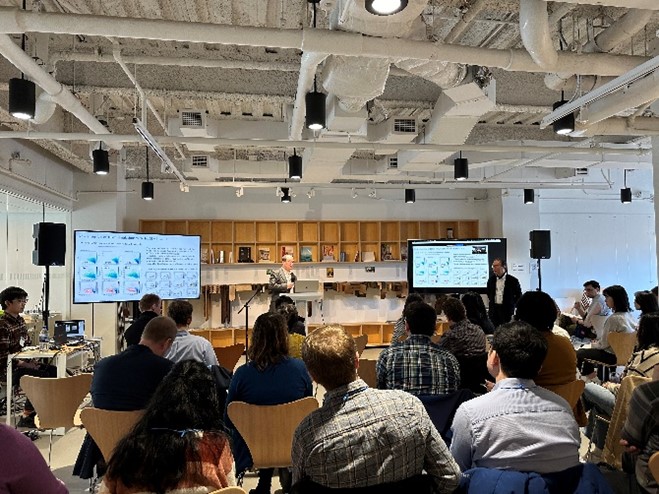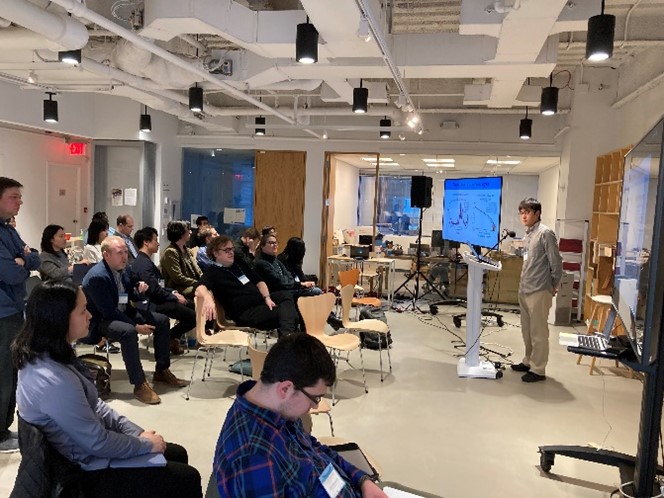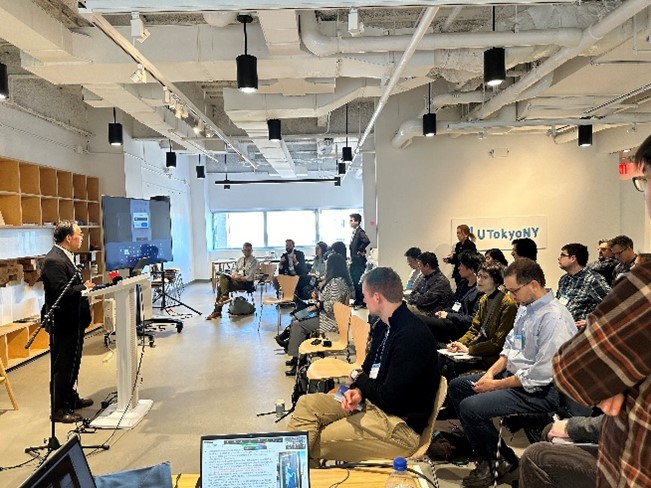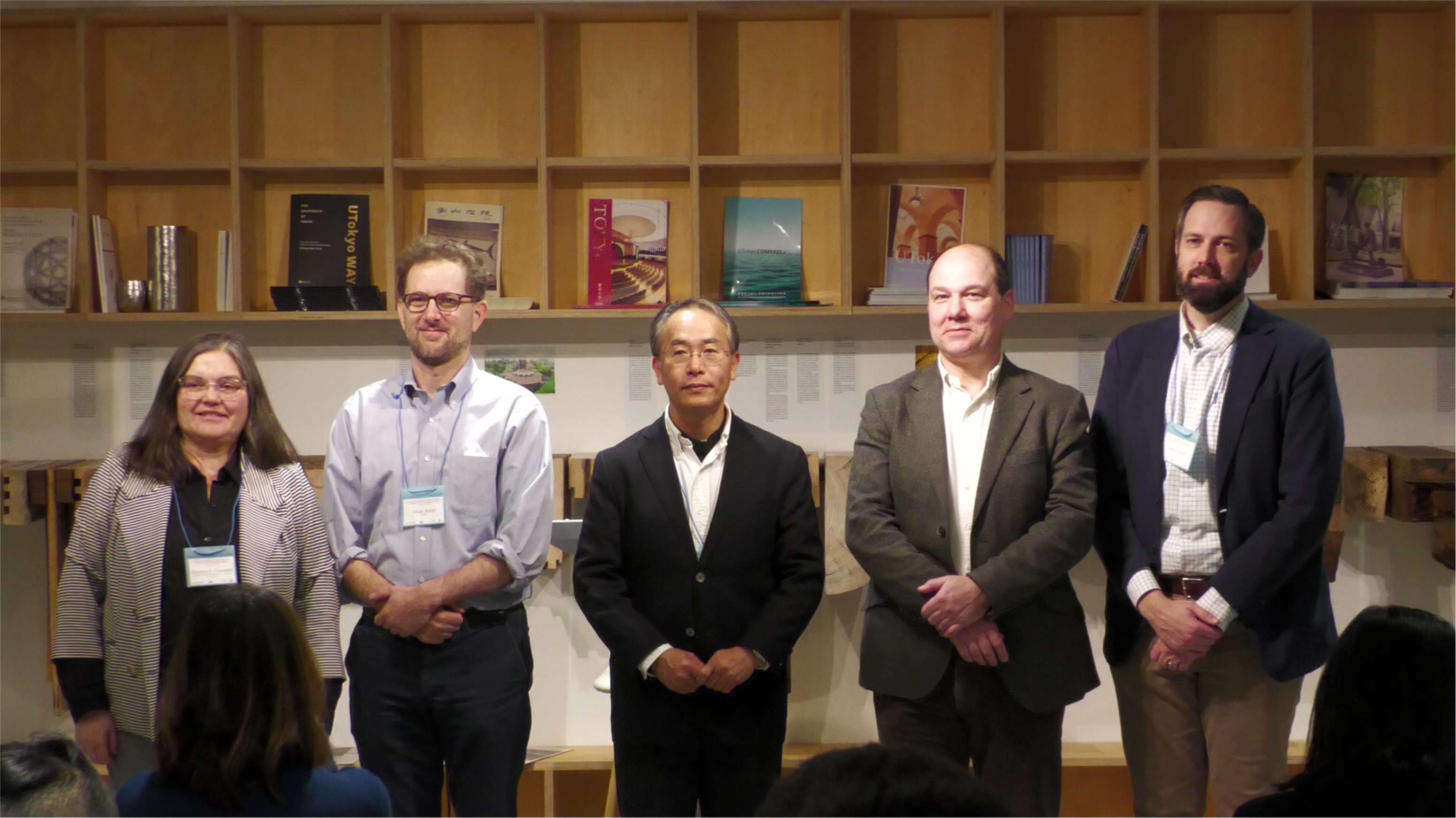As part of “International Core-to-Core Project on Global Storm Resolving Analysis” (abbreviated as ICCP-GSRA; Masaki Satoh, project leader;) supported by JSPS, experts in tropical cyclones and high-resolution modeling from Japan, the U.S., and Europe held a three-day conference from February 5 to 7, 2024, to discuss future research directions based on the latest research results on weather and climate simulations and climate change associated with tropical cyclones. The meeting was held all day on the first and the second days and in the morning on the third. The first morning of the three-day event was announced as “New York Office Event, The University of Tokyo, The New York Meeting on Tropical Cyclones and Global Storm-Resolving Analysis” and was streamed online to registered participants. The event had 49 registered participants in the New York office on-site and 19 online participants. The Keynote speakers and the presentation titles are
・Masaki Satoh (AORI, The University of Tokyo): Global storm-resolving modeling approach for better understanding of future changes in tropical cyclones
・Pier Luigi Vidale (National Centre for Atmospheric Science, Dept. of Meteorology, University of Reading): Cyclones of Tropical Origin in a resolution Cyclones of Tropical Origin in a resolution hierarchy of atmosphere-only and coupled GCMs
・Adam Sobel (Columbia University): Uncertainties in tropical cyclone risk
・Suzana Camargo (Lamont-Doherty Earth Observatory, Columbia University): ENSO diversity impacts on Tropical Cyclone Activity CMIP6 projections
・Kevin Reed (Stony Brook): A storyline framework in CESM for quantifying climate change impacts on hurricanes
In the workshop, the following topics were presented and discussed in particular
・Future changes in tropical cyclones
・Comparative experiments of global storm-resolving models
・Risk management of tropical cyclones
Twelve oral presentations (including Keynote speeches) were given on the first day and 11 on the second day (including three online presentations) with a presentation time of 20 minutes and 10 minutes for Q&A. Masaki Satoh, Pier Luigi Vidale, Suzana Camargo, and Adam Sobel presented and led discussions on the above issues on the third day, and summarized issues for future research.
The University of Tokyo New York Office was well received by the participants in New York, both in terms of location and facilities, and many welcomed the opportunity to interact with the University of Tokyo locally. Many participants expressed their willingness to cooperate and participate in such events in the future.
AORI channel
https://www.youtube.com/watch?v=c1hByBc5Qds&t=257s




